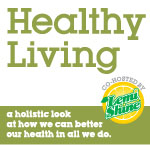
I have always said, take care of your body because it’s the only one you’re going to get. It’s a very simple way to discuss health with my children but it drives home the major message that we only get one shot at this thing called life and it’s up to you how you want it to go.
As parents, it is our job to impart as much of our life lessons as we can upon our children and then some. I take it upon myself to education my children about how their choices impact themselves, others and their environment. One such thing we are seeing more and more of in the eco-news is our food: what’s in it, the effects of it on our health/lifestyle/environment, how it’s made, where it comes from, and on and on.
Food; it’s a basic necessity to live. We are in contact with it at least three times a day if not more. The impact of it is ENORMOUS on our mental and physical health but yet we make some huge sacrifices knowing the repercussions, or do we?
There has been a link between food-born illnesses and long-term health effects that may have you rethinking that street kabob you inhaled last week. It seems that if you have had food poisoning in your life – no more than a few small instances – your body and health will probably pay for it down the road.
Here are the details from a very revealing Scientific American article on food poisoning:
– Each year 1 in 6 people gets sick from contaminated food according to the Centers for Disease Control and Prevention.
– In 2011, the U.S. saw 48 million illnesses, 128,000 hospitalizations and 3,000 deaths from foodborne organisms.
– Long-term consequences are not isolated to people who were hospitalized; they were also found in people who had minor symptoms (fever, vomiting or diarrhea).
– Food poisoning consequences include arthritis, urinary tract problems, damage to the eyes, Guillain-Barré syndrome, chronic bowel inflammation, kidney failure and diabetes.
– These contaminated foods are very common: federal investigators have found them in meat, milk, poultry, eggs, seafood, fruit, vegetables and even processed foods.
What you can do:
– Clean. Wash hands, cutting boards, utensils, and countertops.
– Separate. Keep raw meat, poultry, and seafood separate from ready-to-eat foods.
– Cook. Use a food thermometer to ensure that foods are cooked to a safe internal temperature.
– Chill. Keep your refrigerator below 40°F and refrigerate food that will spoil.
– Report suspected illness from food to your local health department.
– Don’t prepare food for others if you have diarrhea or vomiting.
– Be especially careful preparing food for children, pregnant women, those in poor health, and older adults.
– Visit FoodSafety.gov for the latest information on preventing food poisoning.
Source: CDC
And pay attention to what is going on in the news (Google alerts can be mailed to your inbox). The past week alone has had some major discussions around labeling foods, arsenic in chicken and BPA in food containers. Being actively aware of these issues and reaching out when something is of particular importance to you, can make a difference.
Next week, check back and I’ll be telling you just how much your activism matters.
Green Parenting is published every Friday.
Email your questions to [email protected].



